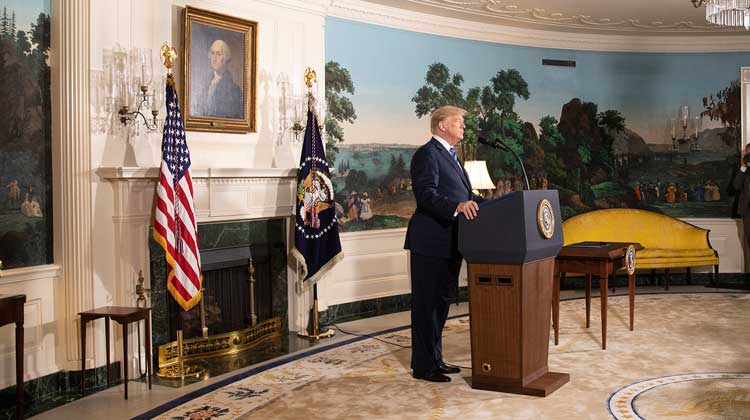
A day after President Trump announced withdrawal from the Joint Comprehensive Plan of Action (JCPOA), Wilson Center Senor Vice President and Director of International Security Studies Robert Litwak said the decision could pit Iran and the world vs. the United States.
“This is the most consequential foreign policy decision taken by the Trump administration,” Litwak said on the Wilson Center forum Trending on May 10. “It ran under the rubric of America first, but this decision raises the possibility that it will be America alone.
With backing from the U.N. Security Council and other world powers, Litwak said it was the “collective pressure” that got Iran to the table in the first place, but Trump’s decision changes things.
“I think the major risk is that the re-imposition of U.S. unilateral sanctions will affect the business climate for foreign entities—commercial entities doing business in Iran—even if the United States does not waive these sanctions on foreign companies,” Litwak said. “We’ve already seen in Iran that the national currency has been in essentially freefall; the economy has suffered under current conditions, and the JCPOA did not lead to the investment boom that they had been hoping for.”
Litwak added that he sees irony as Trump mentioned his upcoming summit with North Korea’s Kim Jong-un in his JCPOA speech.
“[T]he Iran nuclear deal was a precedent that many hoped could be applied in the North Korean case, because the deal with Iran was just that, a deal; it was transactional; it didn’t require a transformation in Iranian foreign policy or the U.S./Iranian relationship,” he said. “That made getting to yes possible with the Iranians, and there’s a hope that with North Korea, a similar template, focused just on its nuclear and missile capabilities, could be applied that would not require a wholesale change in the character of the North Korean regime.”
As far as North Korea is concerned, Litwak said the prospects are uncertain.
“[A]ny agreement with them is likely to be circumscribed, discreet, and it will not entail a full near-term rollback of the North Korean nuclear program,” he said.
Watch the entire Trending broadcast here.
Check out more Homeland411 coverage of the decision to withdraw from JCPOA.
© 2018 Homeland411